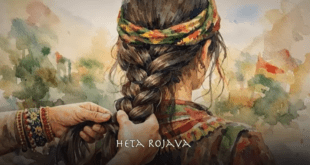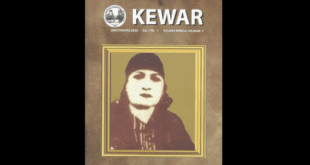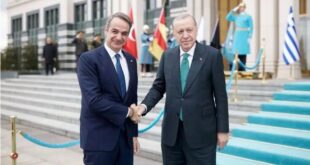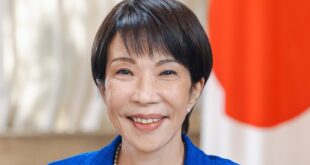There has been a wave of protest in Turkey since Kurdish journalists Nazım Daştan and Cîhan Bilgin were killed in a Turkish drone strike in northeast Syria. The Turkish state has been cracking down hard on those who voice their anger. Amnesty International has issued a statement calling out Turkey for its “crackdown on peaceful dissent”.
Human rights group Amnesty International has published a statement expressing concern over the Turkish state’s bans on protests over the murder of Kurdish journalists Nazım Daştan and Cîhan Bilgin, and its wave of arrests of those who have voiced dissent over the killings.
Daştan and Bilgin were two journalists working for Hawar News Agency whose car was targeted by a Turkish drone near the Tishreen Dam on 19 December, where fierce fighting is taking place between the Turkish-backed Syrian National Army (SNA) and the Kurdish-led Syrian Democratic Forces (SDF) in northeast Syria’s Kobani (Kobanê) region.
After the murders of Bilgin and Daştan, protests began across Turkey, particularly in Diyarbakır (Amed), Ankara, Mersin, and near the Syrian border. All of these protests have faced restrictions, including police in Ankara saying that demonstrators could gather as long as they didn’t accuse the Turkish state of responsibility for the killings.
Crackdown on 20-21 December
Amnesty’s critique focused on the Turkish police’s actions on 20-21 December. They wrote: “Since the killings, protests have been banned, participants detained and criminal investigations launched against those who have expressed their opinions in statements and on social media.”
“On 20 December, law enforcement officials prevented protesters from gathering and at least 55 people, including 10 journalists, were detained in the eastern province but later released the same day. On 21 December, riot police detained 59 people during protests in Istanbul, of whom nine people including seven journalists were remanded in pre-trial detention,” Amnesty continued.
Problems started on 21 December at around 1.30pm, when hundreds of riot police prevented members of the Dicle Firat Journalists Association (DFG) and others from reading out a press statement in Istanbul. This was based on the ban issued by the Beyoğlu district governor. However, according to Amnesty, this banning decision “was not shown to the protestors” prior to the arrests.
Amnesty International observers reported seeing around 100 riot police “surrounding a dozen people gathered for the protest before they could begin their press statement, while dozens of other officers were stationed around the Şişhane square.” Police reportedly made three announcements on a loudspeaker in quick successions, stating that the gathering was banned. The Human Rights organisation reported that the group was not given enough time to disperse.
Violence and threats to detainees
The arrests were apparently deemed necessary, because, according to the authorities, the DFG is “sponsored by an armed group”, a claim Amnesty maintains there is no basis for. Amnesty points out that the ban “exceeded the lawfully allowed restrictions on the rights to freedom of expression and peaceful assembly.”
“While international law provides for restrictions to be introduced to public assemblies, these must be aimed at protecting a legitimate public interest, be necessary and proportionate, meaning that the same result cannot be achieved through other less restrictive means, to ensure the exercise of rights are not unduly restricted. The Beyoğlu district governor’s banning decision that the protest, which was called by the Dicle Fırat Journalists Association, a lawfully established organization, would be attended by people connected to the armed group was neither necessary nor proportionate,” Amnesty wrote.
Arrested protesters were mistreated by officers, including being detained with their wrists cable tied together behind their backs, and their faces roughly pressed against the side of the police’s bus. Several journalists reported threats from police officers, including that they would be returning home in ‘yellow bags’, referring to the bags that the Turkish state uses for returning Kurdistan Workers’ Party (PKK) fighters’ bodies to their families.
Targeting of those who asked for an investigation
Organisations that called for an investigation into Bilgin and Daştan deaths were also targeted. An investigation was opened by Turkish prosecutors into the Istanbul Bar Association after it called for an inquiry into the deaths. The bar association is denying any wrongdoing, and has been supported by other associations across Turkey.
Journalists have also been targeted. Turkish channel T24 is being investigated for its reporting of statements made by DISK Basın-İş and the DFG denouncing the killings. Gerçek Gündem Editor-in-Chief Seyhan Avşar has been told she is also under investigation over social media posts she made after the deaths of the two journalists.
Amnesty pointed out that these repressive moves were in breach of international humanitarian law. They stressed that: “The crackdown against lawyers, journalists and protesters amounts to a misuse of the criminal justice system to intimidate, harass and silence peaceful dissent and as such, is in violation of Türkiye’s obligations under international human rights law.”
“Turkish authorities must immediately release all those detained solely for the peaceful exercise of their human rights. Authorities must promptly, thoroughly, independently, impartially, transparently and effectively investigate the allegations of human rights violations and other actions of the law enforcement officials on journalists and other protesters and bring to justice in fair trials those suspected to be responsible, as well as ensure access to justice and effective remedies for victims,” the group continued.
“The authorities must uphold the human rights of everyone in the country including by immediately ending the arbitrary detention and prosecution of journalists and others solely for peacefully exercising their rights to freedom of expression, association and peaceful assembly. Authorities must stop weaponising the criminal justice system against the Istanbul Bar Association and others simply for exercising their rights and discharging their professional duties and immediately drop the ongoing criminal investigations launched against them,” Amnesty concluded.
Nine people, including seven journalists, have been remanded in custody following the Istanbul protests, They are charged with ‘making propaganda for a terrorist organisation’. There are widespread and growing calls for their release.
———————————————-
This news was originally published by Medyanews.
Photo: Kurdish journalists Nazım Daştan and Cihan Bilgin who were killed by a Turkish drone strike.
 Infowelat Enformasyon Ji Bo Welat
Infowelat Enformasyon Ji Bo Welat




